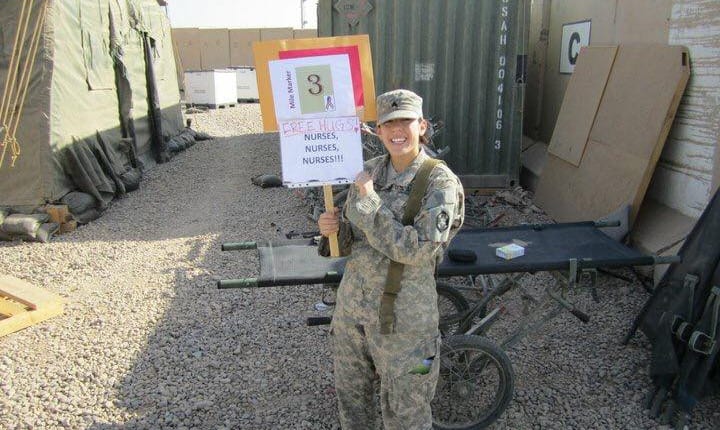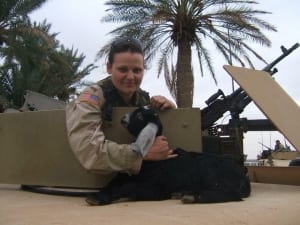
SGT Alicia Rosenbaum in Tikrit in 2010.
By Sabrina Fine, Communications Intern
While speaking at the Virginia Military Institute (VMI) in Lexington, VA, Defense Secretary James Mattis told cadets that the “jury is still out” on women serving in the infantry. His remarks were perceived in different ways.
When a male cadet asked Mattis what his thoughts were on research of women in the military. Mattis said it was a very difficult situation and was also linked to societal gender roles.
“In the event of trouble, you’re sleeping at night in your family home and you’re the dad, mom, whatever. And you hear glass break downstairs, who grabs a baseball bat and gets between the kids’ door and whoever broke in, and who reaches for the phone to call 9-1-1,” said Mattis. “In other words, it goes to the most almost primitive needs of a society to look out for its most vulnerable.”
He stated that his job was to help solve problems. Yet, looking at current numbers studies there just isn’t enough yet to know if it is beneficial.
“This is an issue right now that we have Army, Navy, Marines ― all looking at as we speak. And that is the close-quarters fight being what it is, you know, is it a strength or a weakness to have women in that circumstance,” asked Mattis.
Mattis said that there is not currently enough data and that while he is open to it, he would like to make an educated decision on the matter.

SGT Hilary LaFever in Eastern Diyala in 2006.
Some women did not take those comments positively. Service Women’s Action Network (SWAN) is suing the U.S. government because of the limits in women combat roles.
Monica Medina is a board member of SWAN, whose mission is to give military women past, future and present a voice. Medina helped write Defense Secretary Leon Panetta’s women integration policy.
“Now the current defense secretary appears to be undercutting that policy (“This is a policy that I inherited,” Mattis said) by casting doubt on women’s ability to fight in combat units,” wrote Medina in the Washington Post.
Panetta’s policy opened all jobs, in all units, including combat ones to women. The policy stated that their mission was to put the most qualified service members in roles in order to maintain mission readiness.
If a woman could pass the requirements, she could fit the role. Currently, the numbers of women serving in those roles are small. According to the Army Times, 18 women have graduated from the elite Army Ranger School. According to the Military Times, two women have graduated from the Marine’s 13-week Infantry Officer Course.
Yet, some data from June 2016- June 2018 indicates that women sustained fewer injuries which conflicts with past studies suggesting combat units with women were less effective and had more injuries.
Mattis explained there was not enough information and statistics for him to make a decision.
“Remember our natural inclination to have this open to all. But we cannot do something that militarily doesn’t make sense,” Mattis told the cadet.
He argued that the media has mistaken his comments. He also mentioned that the female cadets he was speaking to did not take his comments negatively, he explained to reporters at the Pentagon.
“The female cadets took it just the opposite ― that the door was open,” said Mattis to reporters.
Volume 72. Number 4. Winter 2018

